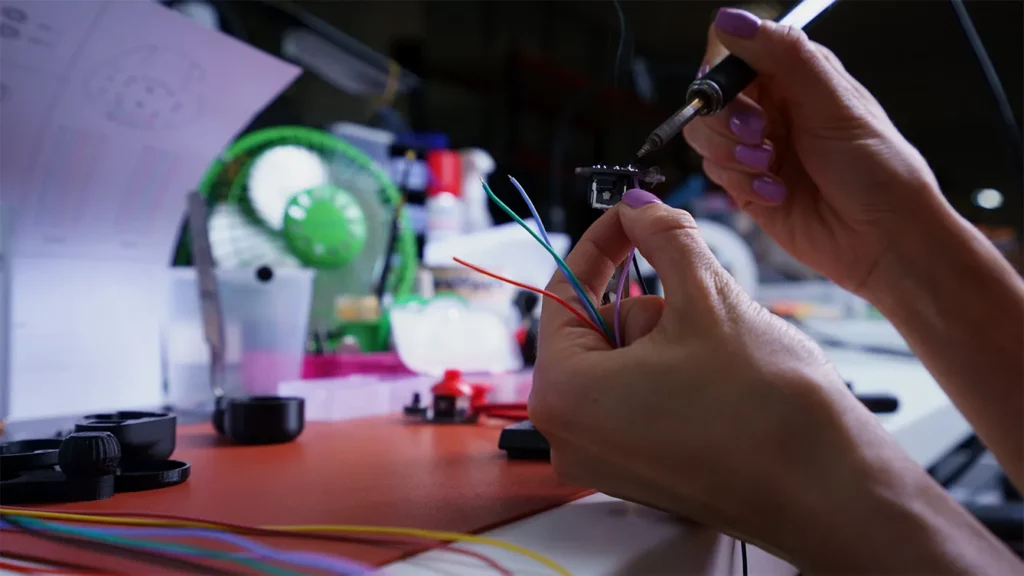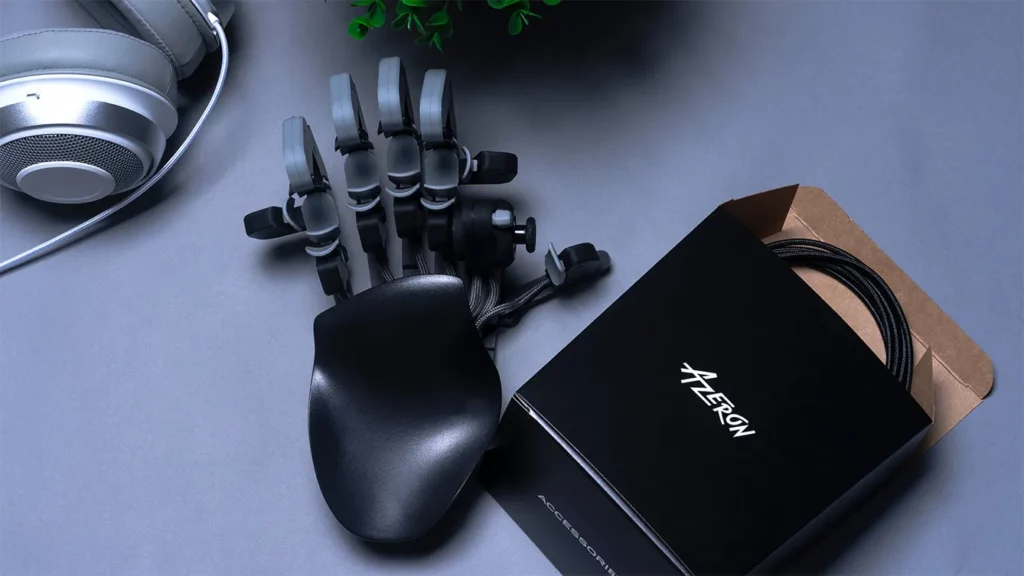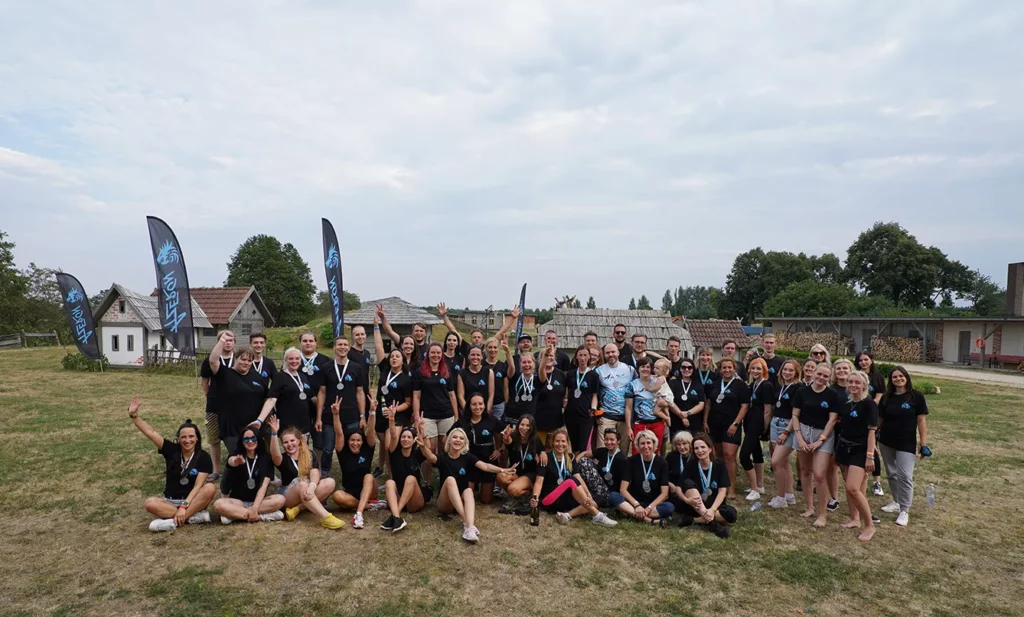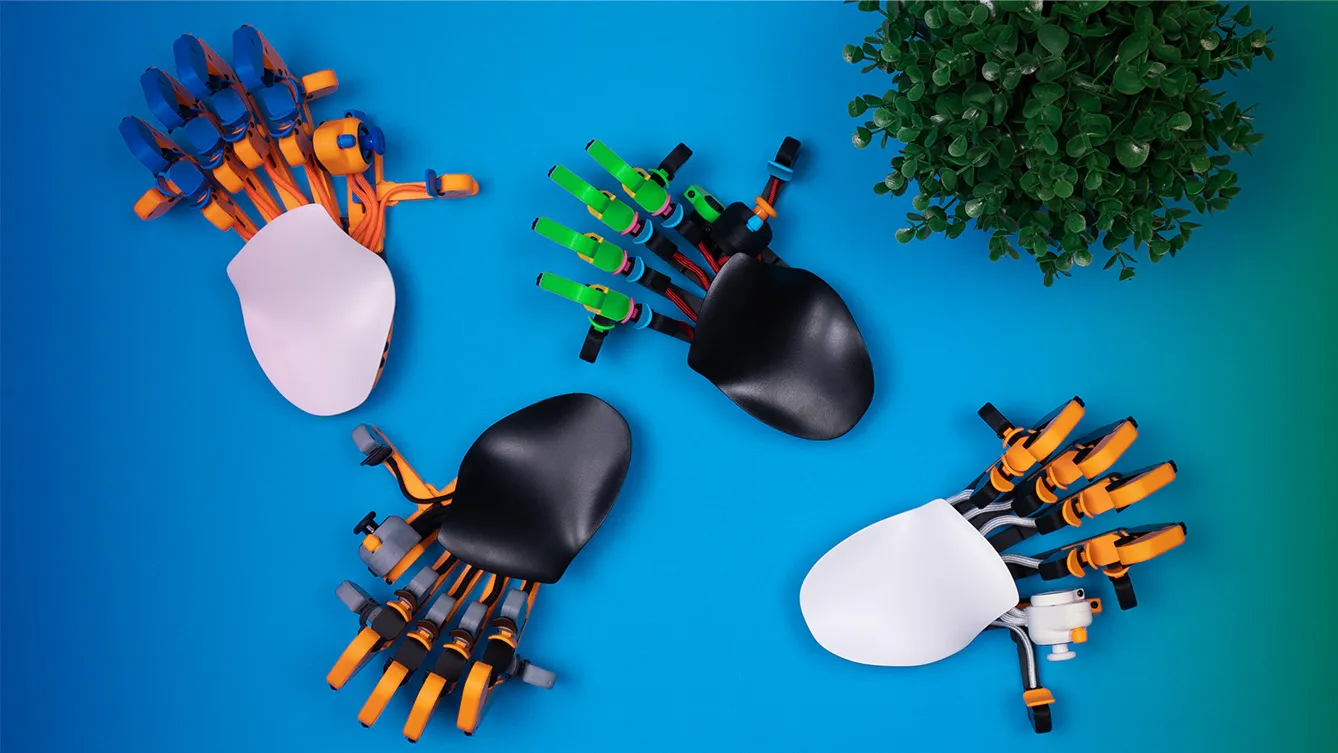Guild Wars 2 was released in 2012. Among those waiting to try the multiplayer online role-playing game was Imants Daigins, a Latvian gamer. He was immediately drawn in, only to find that playing the game with a regular keyboard was uncomfortable. It took too many buttons to simultaneously attack monsters, avoid shots and interact with other players. This critical conclusion marked a turning point in Daigins’ life that led to the birth of Azeron – a company that now produces the highly ergonomic gaming keypads loved worldwide.
Instead of giving up on the game, Daigins set about solving the limitations of the keyboard. He designed and built a controller for himself out of wood. Having proven the concept and gaining positive feedback from friends, Daigins realized that he could not be the only one facing a similar issue.
Progresses with the help of local university
He turned to the Ventspils University of Applied Sciences to discuss using its 3D printers to produce the controllers at scale. The next few years were all about refining the concept, and, gradually, Daigins began to share news of the product on gaming forums and to approach industry influencers. In 2019, Beaks, a prominent influencer, released a video endorsing the creation. At this point, the company was only just in the process of being officially founded. Daigins expanded the Azeron team, and they found a way to start satisfying demand fast, learning major business lessons along the way.
By now, Azeron employs over 100 staff and has exported over EUR 10 million worth of products to over 100 countries around the globe, according to board member Jānis Kūlbārdis. The company continues to operate from its hometown of Ventspils, and Kūlbārdis explains why: “It provides very favorable conditions for launching a business – a workforce that speaks two to three languages, a university that ensures a pipeline of young talent, production facilities, and infrastructure, as well as major support from the municipality.”



“By doing everything in Ventspils and working with 3D printers, we can quickly apply changes and improvements to the product [which consists of over 100 parts] and production cycle. Additionally, from Ventspils, we have direct access to the European single market, as well as fast delivery to the United States, Japan, and other countries, which is very important to us,” Kūlbārdis continued. Now, customers can even benefit from next-day delivery to the US West Coast.
Catering to diverse needs
Alongside ongoing production, Azeron is working on new product development. One project that the company is involved in with the support of the Norway Grants program is about improving the quality of life for people with different needs. “We often get approached by customers with conditions like nerve damage, arthritis or injured fingers – US war veterans, for example, who suffered severe hand damage in Afghanistan or Iraq and cannot play video games with the current solutions on the market,” Kūlbārdis explains.
“We try to help in these cases, but it takes a lot of time, so we’re looking for ways to automate the process. These customers often call for even more flexibility in our product, so we’ve started to work on a prototype for an online tool that will allow users to adapt our keypads to their needs and add new functions to be able to use them beyond video games,” he elaborates. Already now, customers can use Azeron keypads for modeling, animating, and photo and video editing.
Kūlbārdis mentions a customer from Pakistan. “We adapted our keypad for use with two fingers. As a thank you, he sent a video of himself successfully playing a game that requires pushing a lot of buttons at the same time.”
The Cyro – designed for one-handed gaming
Recently, Azeron also introduced a new kind of keypad to the market – the Cyro – which is designed for one-handed gaming. “Cyro users, too, send us videos and feedback along the lines of “your products allow me to do things that I couldn’t do before.” That motivates us to keep working to make computers accessible to people around the world despite various disabilities,” Kūlbārdis shares.
The makers of the unique device, which draws from both craftsmanship and high tech, are based at the Ventspils High Technology Park, a multifaceted foundation tasked with supporting the business with infrastructure, information, and growth services. The family-friendly city of Ventspils is also a popular tourism destination, home to the likes of the state-of-the-art Vizium science center, a narrow gauge railway, and a water park.







